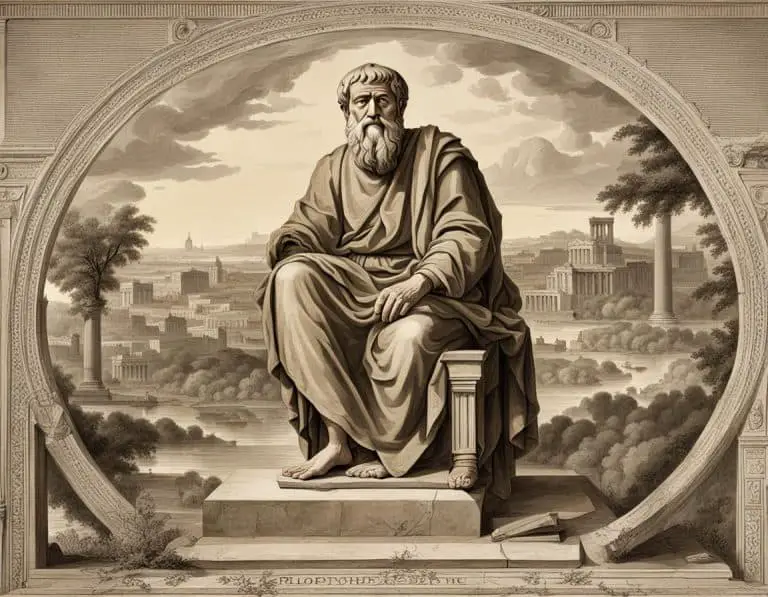Logic and Reasoning
Plato’s philosophical framework was significantly shaped by the emphasis Socrates placed on logic and reasoning. Socrates’ relentless pursuit of truth through methodical questioning instilled in Plato a deep appreciation for the power of critical thinking and intellectual inquiry. This foundational element of Socratic philosophy laid the groundwork for Plato’s own theories on knowledge and the nature of reality.
The dialogues between Socrates and his interlocutors served as a model for Plato’s dialectical method, which involved the systematic examination of concepts and beliefs to arrive at a deeper understanding of philosophical issues. By incorporating Socrates’ emphasis on logical argumentation and rigorous debate into his own philosophical inquiries, Plato sought to uncover universal truths and principles that transcended the limitations of human perception and opinion.
Socrates’ Influence on Plato’s Dialectics
Socrates’ influence on Plato’s dialectics was profound, shaping the very essence of how philosophical discourse would unfold within the Platonic dialogues. What distinguishes Plato’s dialectical method is its emphasis on the pursuit of truth through rigorous questioning and examination of underlying assumptions. This approach mirrors Socrates’ own mode of inquiry, where he would engage interlocutors in probing conversations to uncover deeper layers of understanding.
In Plato’s dialogues, we see a refinement of Socratic dialectics, characterized by a structured process of thesis, antithesis, and synthesis. This dialectical method not only serves to unravel contradictions and reveal inconsistencies in arguments but also strives to arrive at a higher truth through dialectical reasoning. By building on Socrates’ legacy of relentless questioning and logical reasoning, Plato crafted a philosophical framework that continues to influence intellectual thought to this day.
Education and Learning
Socrates’ profound impact on Plato’s educational ideologies was fundamental in shaping the philosophy that guided the Academy, a foundational institution in ancient Greece. At the heart of this influence lay Socrates’ unwavering commitment to questioning assumptions and seeking deeper truths through dialogue and inquiry. This inspired Plato to establish a learning environment that prioritized critical thinking, discussion, and the pursuit of knowledge beyond surface-level understanding.
Plato’s Academy, known for its intellectual rigor and emphasis on philosophical exploration, mirrored Socrates’ teaching methods by encouraging students to engage in dialectical inquiries and debates. The Socratic influence fostered an educational environment where students were challenged to scrutinize their beliefs, question societal norms, and strive for a more profound comprehension of the world around them. Through this educational approach, Plato sought to instill in his pupils not only a thirst for knowledge but also a commitment to self-reflection and intellectual growth.
Socratic Influence on Plato’s Academy
Plato’s Academy, founded in 387 BC, was influenced profoundly by the teachings of his mentor, Socrates. At the heart of the Academy’s educational philosophy was the method of questioning and dialogue — a hallmark of Socratic teaching. This method aimed to stimulate critical thinking and engage students in deep philosophical inquiry, mirroring the way Socrates himself challenged commonly held beliefs and encouraged self-examination.
Within the walls of the Academy, Socratic influence could be seen in the way students were encouraged to question assumptions, explore different perspectives, and seek knowledge through dialectical reasoning. This approach to learning emphasized the importance of open-mindedness, intellectual humility, and the pursuit of truth. The Academy became a hub for philosophical debates and discussions, fostering an environment where individuals were inspired to think independently and rigorously analyze ideas — all principles that echoed the spirit of Socratic philosophy.
Concept of Justice
Plato’s concept of justice was heavily influenced by his teacher Socrates, who believed in the importance of living a just life. Socrates’ teachings highlighted the idea that true justice comes from within, from having a virtuous soul. This emphasis on inner morality rather than external laws resonated deeply with Plato, shaping his foundational beliefs about the nature of justice.
In Plato’s dialogues, such as “The Republic,” he explores the concept of justice through the lens of an ideal society. He argues that true justice can only be achieved when each individual performs their designated role in society to the best of their abilities, following the principles of wisdom and reason. This harmonious existence, as envisioned by Plato, reflects the influence of Socrates’ emphasis on living a just life through self-awareness and moral integrity.
Socrates’ Influence on Plato’s Views
Socrates’ profound impact on Plato’s philosophical views cannot be overstated. One of the key areas where Socrates influenced Plato was in his conception of justice. Socrates’ relentless pursuit of truth and morality deeply influenced Plato’s thoughts on what constitutes true justice and how it should manifest in society. Plato’s famous work “The Republic” delves into the concept of justice and governance, reflecting the echoes of Socratic ideals blended with Plato’s own innovative insights.
Furthermore, Socrates’ emphasis on the importance of self-examination and reflection left a lasting imprint on Plato’s philosophical framework. Plato adopted Socrates’ method of questioning and dialogue as a fundamental tool in his philosophical inquiries. Through the Socratic method, Plato not only sought to uncover deeper truths but also to challenge existing beliefs and assumptions. The interplay between Socrates’ teachings and Plato’s philosophical interpretations laid the foundation for a rich tapestry of philosophical thought that continues to influence scholars and thinkers to this day.
Related Links
A Review of Socrates’ Impact on Plato’s Philosophy
The Historical Significance of Socrates’ Influence on Plato

